Cisco NSS2000 review
The NSS family signals Cisco’s moves into the SMB network storage market. In this review we find out whether the NSS2000 has what it takes to stand up to the established names.
The NSS2000 hits the spot for value and is well suited to environments that abhor noise. Cisco’s drive encryption and virtualisation features are unusual for an entry-level appliance and it’s easy to configure but general file copy performance is comparatively poor. The optional CDP software could prove very useful for small businesses, but bear in mind it will work with any NAS appliance or network share.

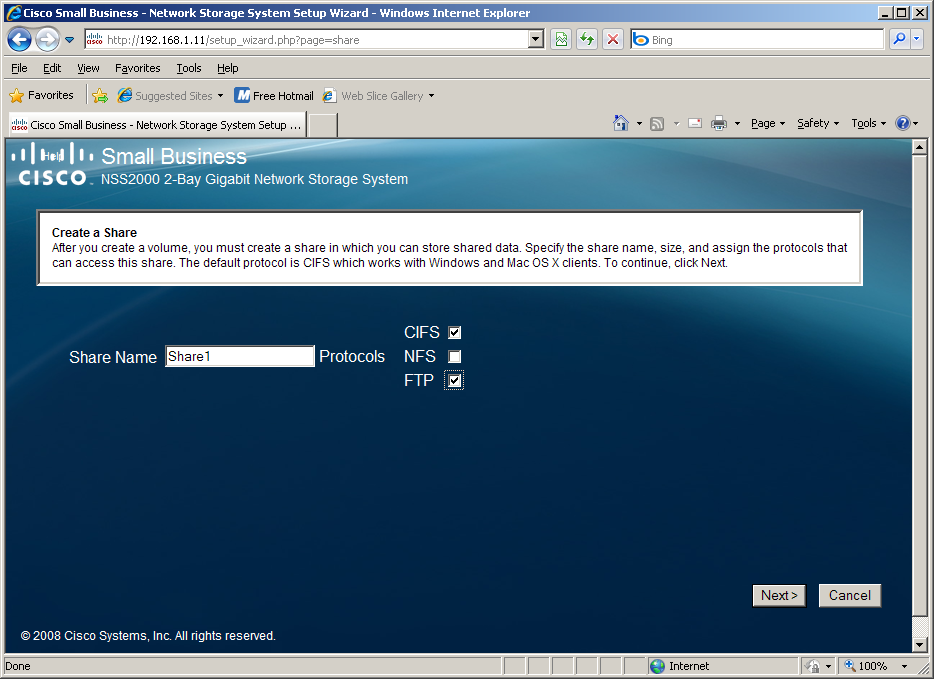
Cisco NSS2000
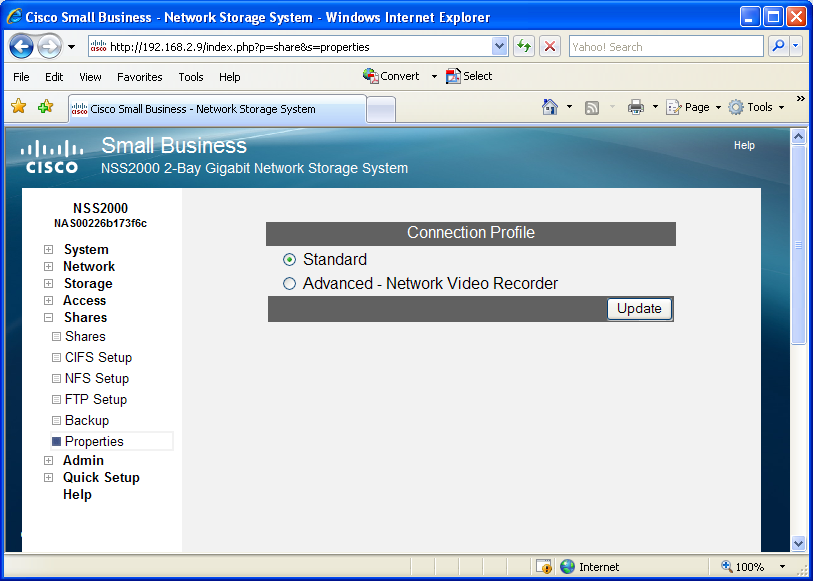
Cisco NSS2000
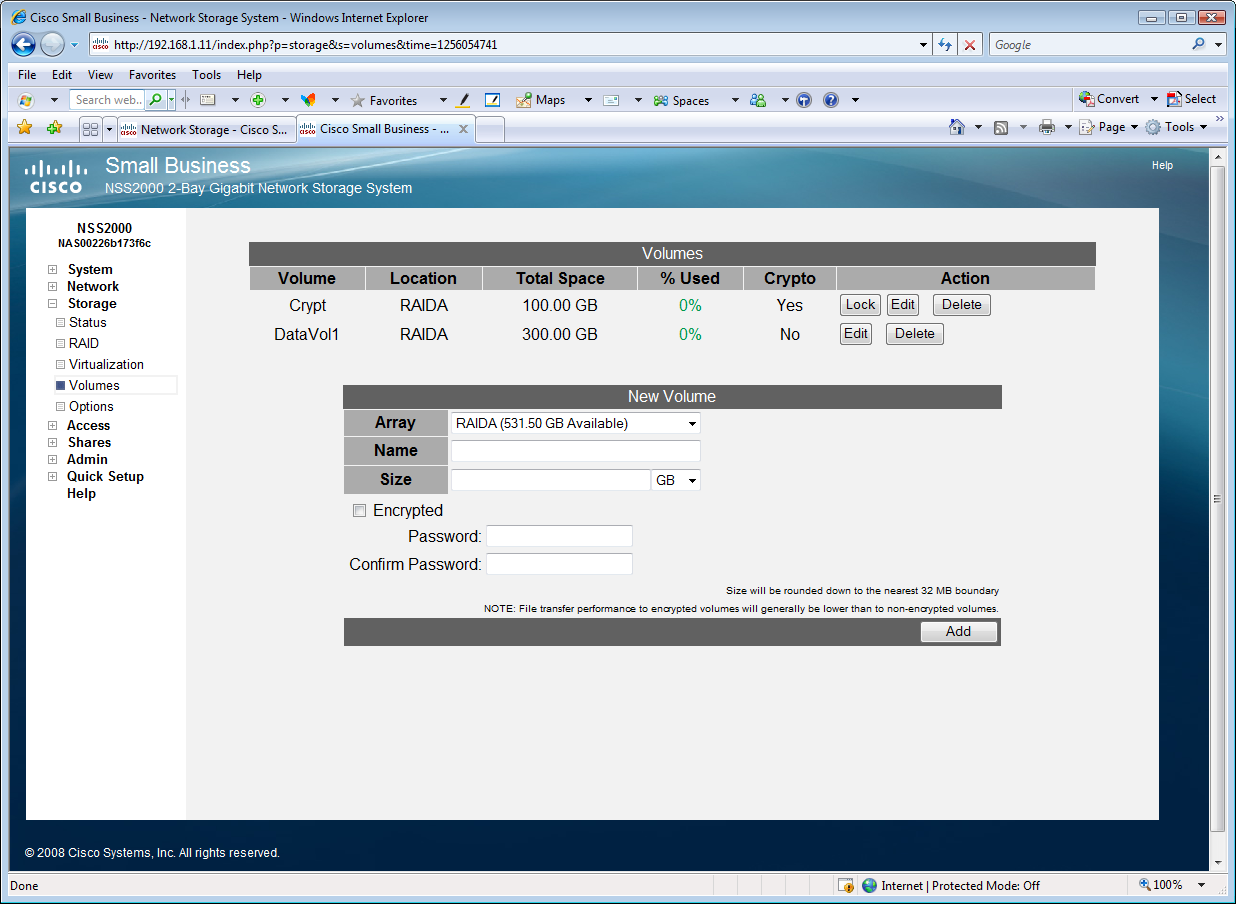
Cisco NSS2000
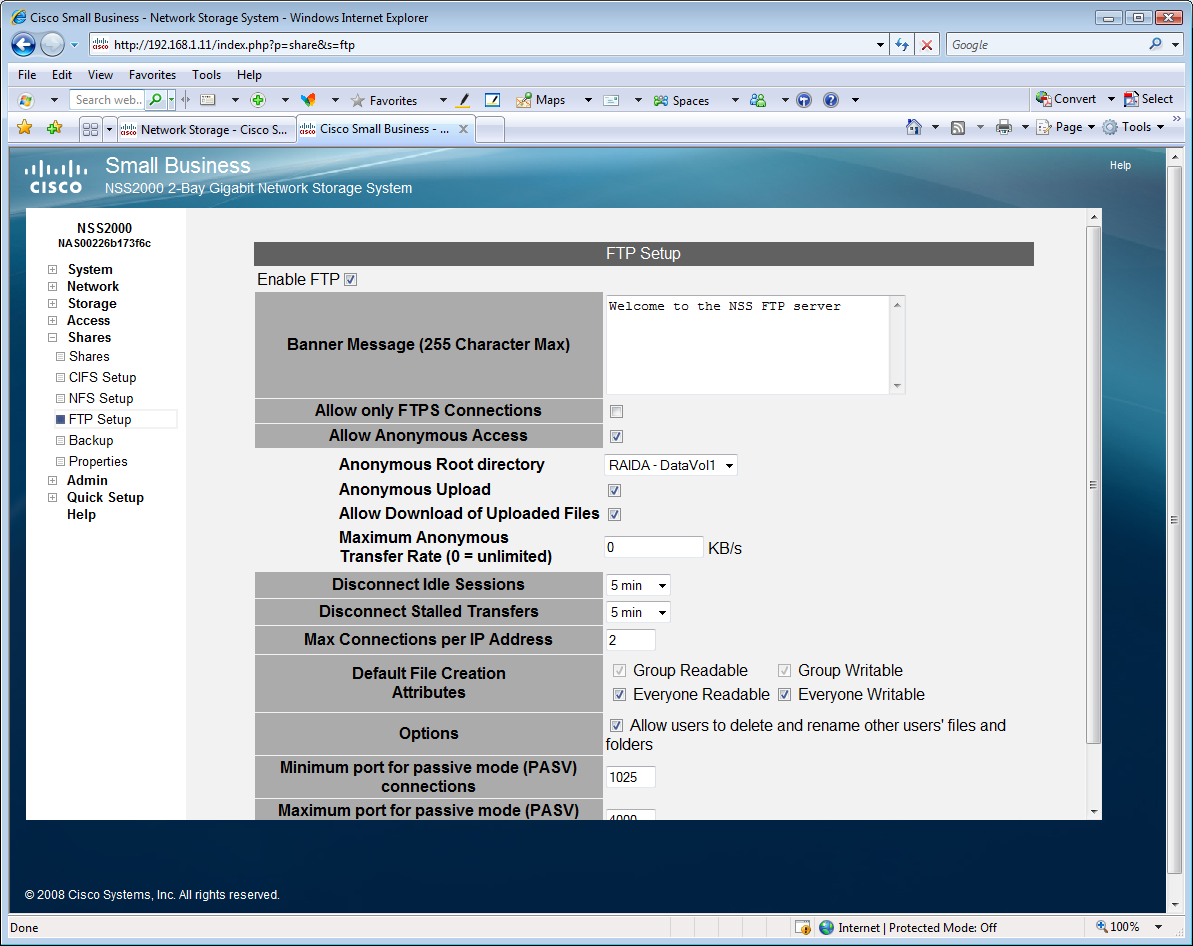
Cisco NSS2000
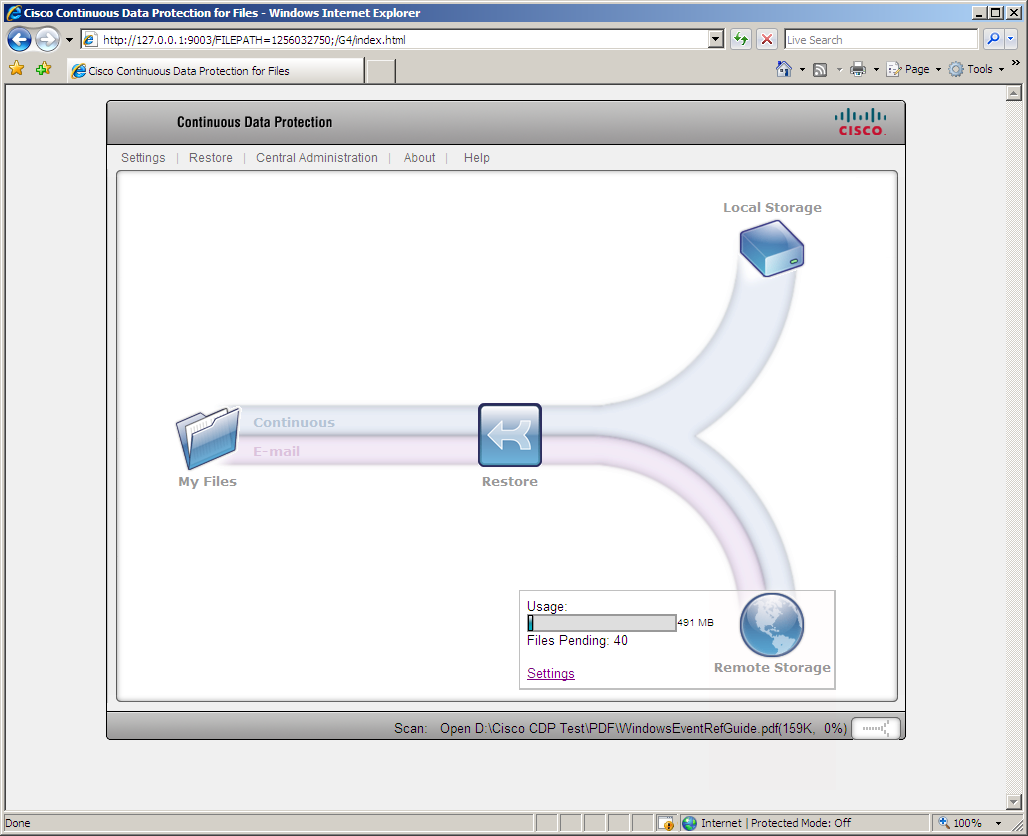
Cisco NSS2000
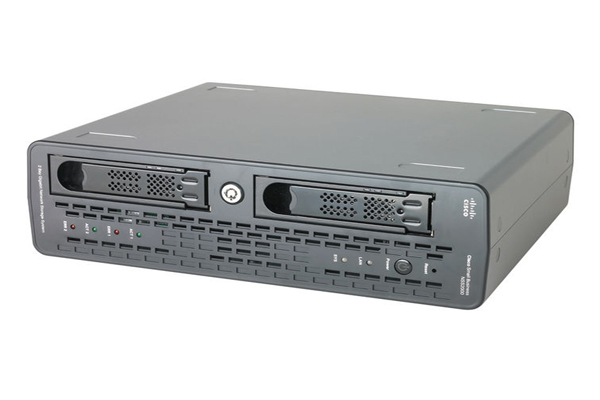
Cisco NSS2000
Cisco has traditionally been quite happy to leave its consumer division to handle all small and medium-sized business (SMB) network storage products but the Linksys brand has never really cut it for businesses. With its latest Network Storage System (NSS) products, Cisco has taken over the entire family and beefed it up with the release of 11 new appliances.
This is the result of Cisco's new Small Business Technology Group, which was formed earlier this year with the express purpose of developing a number of affordable networking solutions for SMBs. Another member of this initiative is Cisco's Virus & Spam Blocker and you can see an exclusive review of this over at our sister title PC Pro.
On review here is the entry-level NSS2000, which is a dual-drive desktop unit. The family also includes the NSS3000 quad-drive desktop appliances and then you have the NSS4000 and NSS6000 quad-drive rack mount systems.
Standing at nearly a foot tall in its chunky desktop stand, the NSS2000 is certainly imposing but is extremely well built. The two hot-swap drive carriers are accessed from the front and a single lock in between them secures both bays.
A key focus of the NSS2000 is small offices that value their peace and tranquillity and we found noise levels from the cooling system to be very low. The appliance is supplied diskless but check Cisco's approved drive list first as it comprises a modest selection of Seagate and Western Digital drives. For testing we popped in a pair of approved 1TB WD GreenPower drives.
Although the appliance offers three USB ports the two auxiliary ports are designed to accept flash drives only for backing up and restoring system configuration files. The third port accepts an APC UPS, which can be monitored by the appliance where it provides a status readout of available power and can initiate an orderly system shutdown in the event of a prolonged blackout.
Get the ITPro daily newsletter
Sign up today and you will receive a free copy of our Future Focus 2025 report - the leading guidance on AI, cybersecurity and other IT challenges as per 700+ senior executives
Dave is an IT consultant and freelance journalist specialising in hands-on reviews of computer networking products covering all market sectors from small businesses to enterprises. Founder of Binary Testing Ltd – the UK’s premier independent network testing laboratory - Dave has over 45 years of experience in the IT industry.
Dave has produced many thousands of in-depth business networking product reviews from his lab which have been reproduced globally. Writing for ITPro and its sister title, PC Pro, he covers all areas of business IT infrastructure, including servers, storage, network security, data protection, cloud, infrastructure and services.
-
 CyberOne appoints Microsoft’s Tracey Pretorius to its advisory board
CyberOne appoints Microsoft’s Tracey Pretorius to its advisory boardNews The threat intelligence leader will provide strategic guidance to CyberOne’s executive team
By Daniel Todd Published
-
 CISA issues warning in wake of Oracle cloud credentials leak
CISA issues warning in wake of Oracle cloud credentials leakNews The security agency has published guidance for enterprises at risk
By Ross Kelly Published
-
 Reports: White House mulling DeepSeek ban amid investigation
Reports: White House mulling DeepSeek ban amid investigationNews Nvidia is caught up in US-China AI battle, but Huang still visits DeepSeek in Beijing
By Nicole Kobie Published